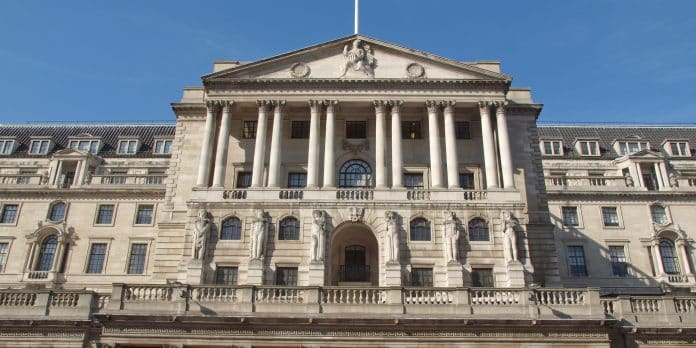Research and campaign group Positive Money welcomes the Environmental Audit Committee’s (EAC) calls for the Bank of England (BoE) to align its corporate bond purchases with the Paris Agreement before COP26, as well as its recommendation for the Bank to add conditions to shorter-term corporate support schemes.
In a letter to BoE governor Andrew Bailey, EAC chair Philip Dunne MP warned that “the Bank is at risk of creating a moral hazard by purchasing high-carbon bonds and providing finance to companies in high-carbon sectors without placing any conditions on them
to make a transition to net zero.”
Referring to the BoE’s corporate bond purchase scheme (CBPS), which reached £20bn in 2020, Dunne urged: “The Bank must begin a process of aligning its corporate bond purchasing programme with Paris Agreement goals as a matter of urgency. It must do this before COP26 to avoid undermining UK diplomatic leadership on climate change and to demonstrate the seriousness of the UK’s commitment to fulfil its Nationally Determined Contribution.”
The EAC’s intervention comes as the BoE is considering how to implement a change in mandate that will enable it to ‘green’ its policies, expected from the Chancellor alongside the Budget in March. It is currently unclear exactly what this will mean in practice, but groups like Positive Money are putting pressure on the Treasury and the Bank for it to at the very least translate into fossil fuel assets being excluded from bond purchases, as central banks such as the Swiss National Bank have recently announced.
On the BoE’s separate multi-billion pound corporate bailout scheme, the CCFF, Dunne recommended: “In future, the Bank should require large companies receiving millions of pounds of taxpayer support via the Covid Corporate Financing Facility (CCFF) to publish climate-related financial disclosures in line with the Government’s Green Finance Strategy. The Bank should also write to all the companies that have already received CCFF loans to remind them that the Government’s Green Finance Strategy expects to see all listed companies and large asset owners publish disclosures by 2022.”
The recommendations were a result of the Environmental Audit Committee’s ‘Greening the post-COVID recovery’ inquiry, which saw Positive Money give evidence making the case for such changes to the BoE’s stimulus programmes. A report by Positive Money last year detailed the extent to which the CCFF was failing the government’s desire to ‘build back better’.
Fran Boait, executive director of Positive Money, said:
“As the public institution overseeing and underpinning our financial system, the actions of our central bank have a key role to play in ensuring a green COVID recovery. It’s more important than ever that the Bank of England gets its house in order, especially with all eyes on the UK ahead of the COP26 climate summit.
“The Chancellor needs to make it clear to the Bank of England that its market-shaping policies must support rather than hinder the government’s climate targets. As a first step ahead of COP, the Bank should show its seriousness by dumping fossil fuels from its balance sheet, alongside further action to bring the carbon footprint of finance down from more than 3.5C warming, and in line with the Paris Agreement.
“Without bold action from the Treasury and the Bank of England the UK risks falling behind other countries, and the entire world risks falling further away from a safer future.”
PLEASE SUPPORT US FOR JUST £2 A MONTH







